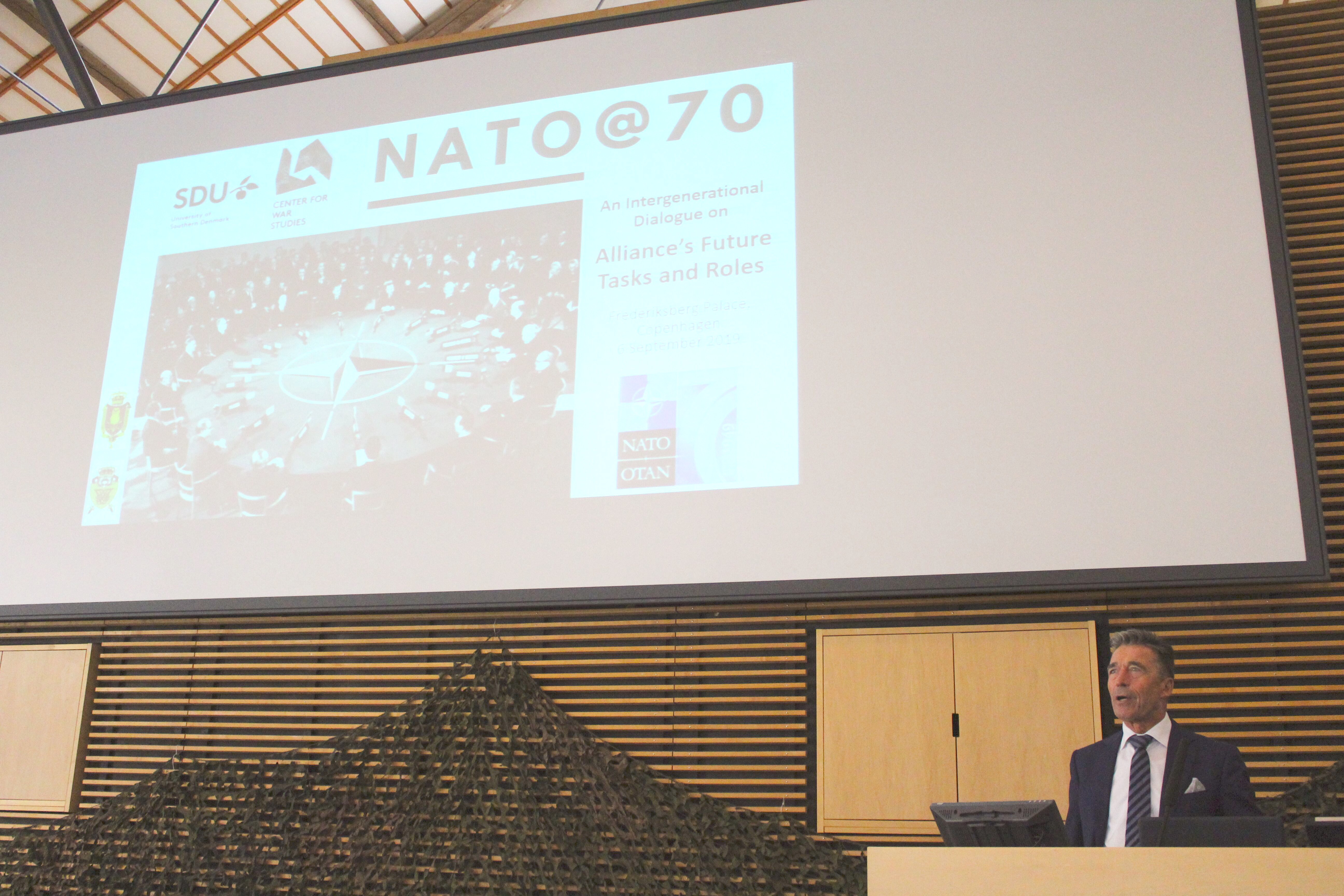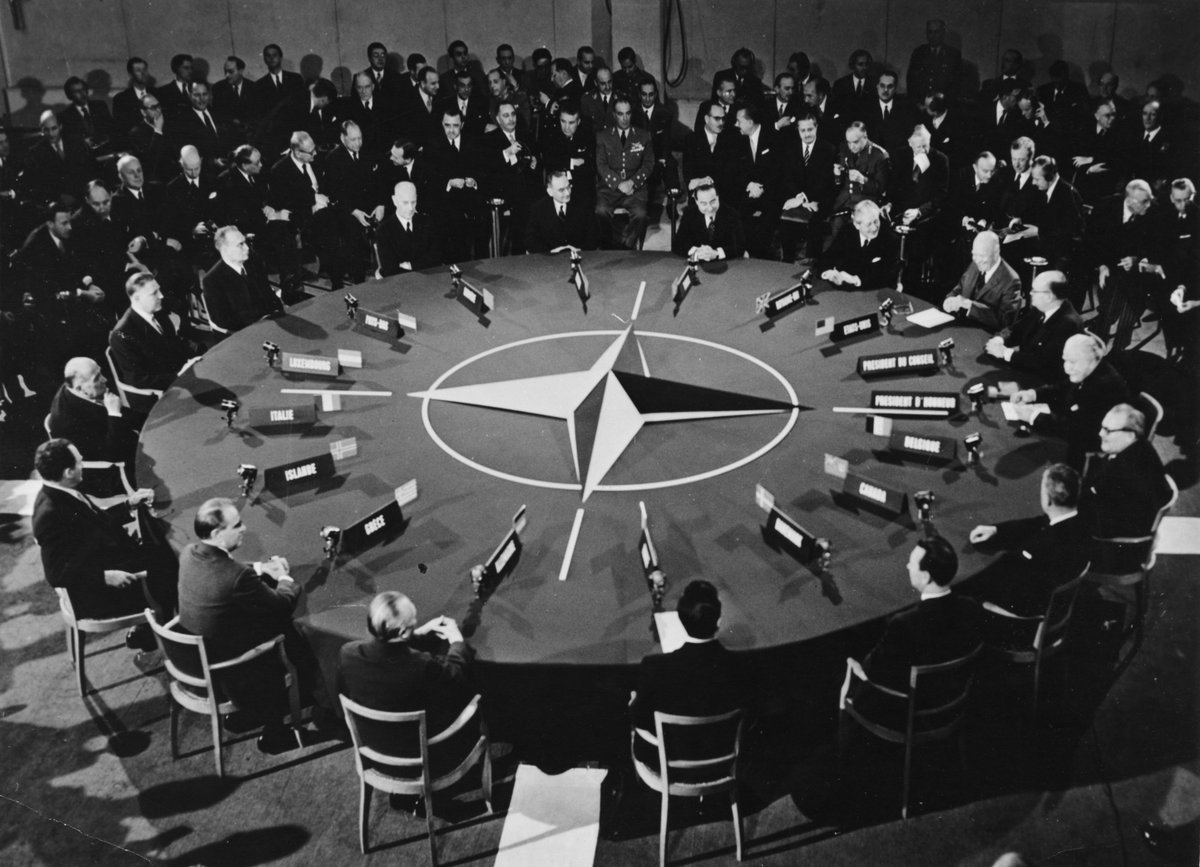
NATO @70: The Alliance’s Future Tasks and Roles
CWS PhD-candidates Vicky Karyoti and Michael Gjerstad provide a summary of CWS' NATO@70 conference with Anders Fogh Rasmussen. The conference was organized by the Center for War Studies (CWS) in cooperation with the Royal Danish Defence College and the Royal Danish Military Academy and held on 6. September at Frederiksberg Castle.
What is the future of NATO? Is the 70-year celebration a milestone on the way to 70 more years, an opportunity for reflection and revaluation? What is the role of the European states vis-à-vis their obligations towards the Alliance? Which are the strategic threats against its survival and is NATO still relevant? These were the main questions which guided the NATO@70 International Conference, held on September 6th, 2019 at Frederiksberg Castle. The conference was organized by the Center for War Studies (CWS) in cooperation with the Royal Danish Defence College and the Royal Danish Military Academy, in order to commemorate the seven decades of transatlantic cooperation, as well as discuss the Alliance’s future tasks and roles.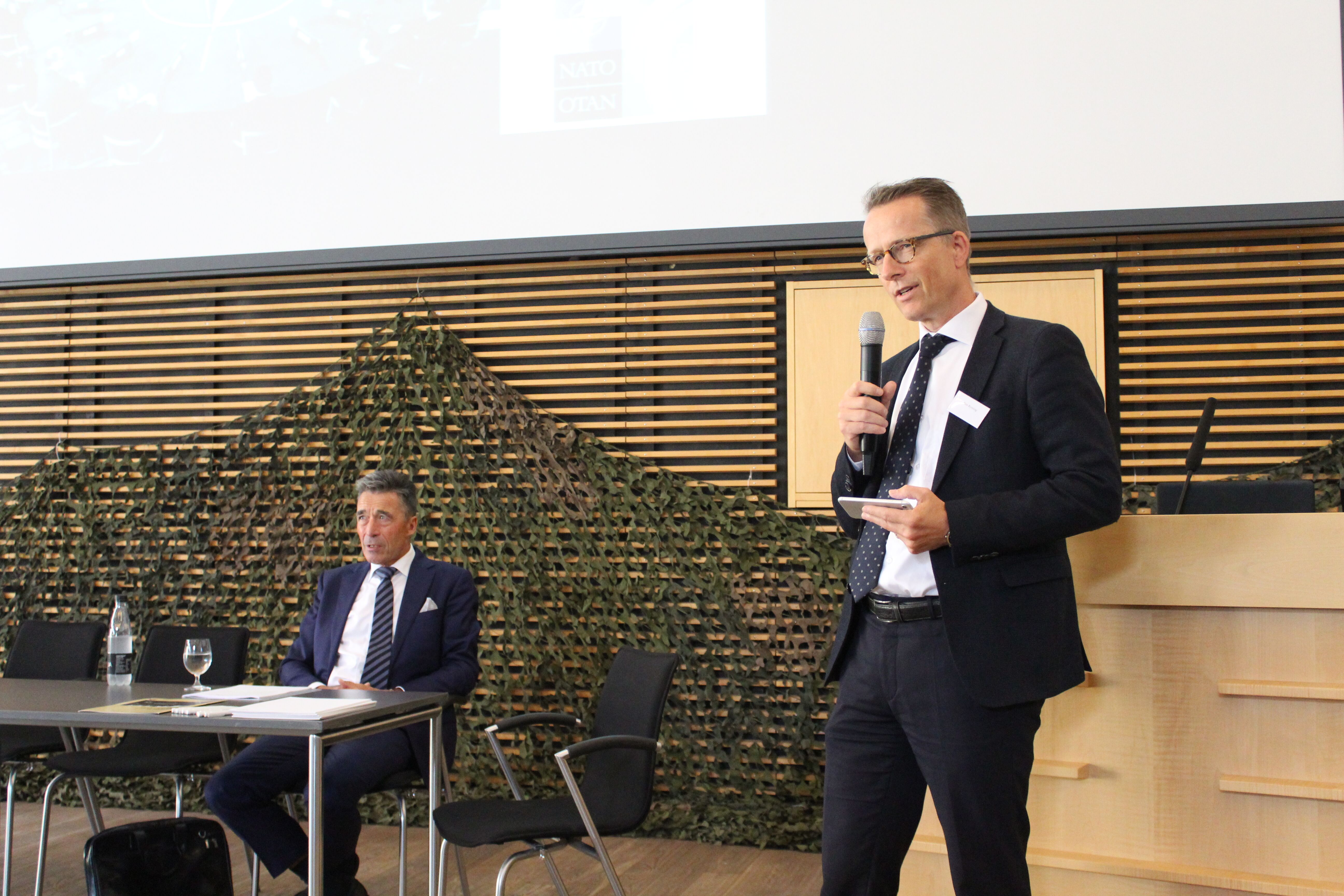
The conference opened with welcoming remarks from Olivier Schmitt, Head of the Center for War Studies, and Sten Rynning, Vice Dean for Research at the Faculty of Business and Social Sciences at SDU, who presented one of the current challenges with which NATO is struggling: the future of the Alliance in an environment where nationalism is on the rise. As long as partners appreciate each other, Rynning said, the Alliance is able to react to whatever is brought in its way. But in the age of nationalism, appreciation becomes dangerous; this passion is directed solely towards one’s own territory, one’s own people. So how does the Alliance, how does Europe and the United States handle this new situation? Rynning gave the answer: by bringing together smart people to think seriously about the future of NATO, and this is what the conference tried to accomplish.
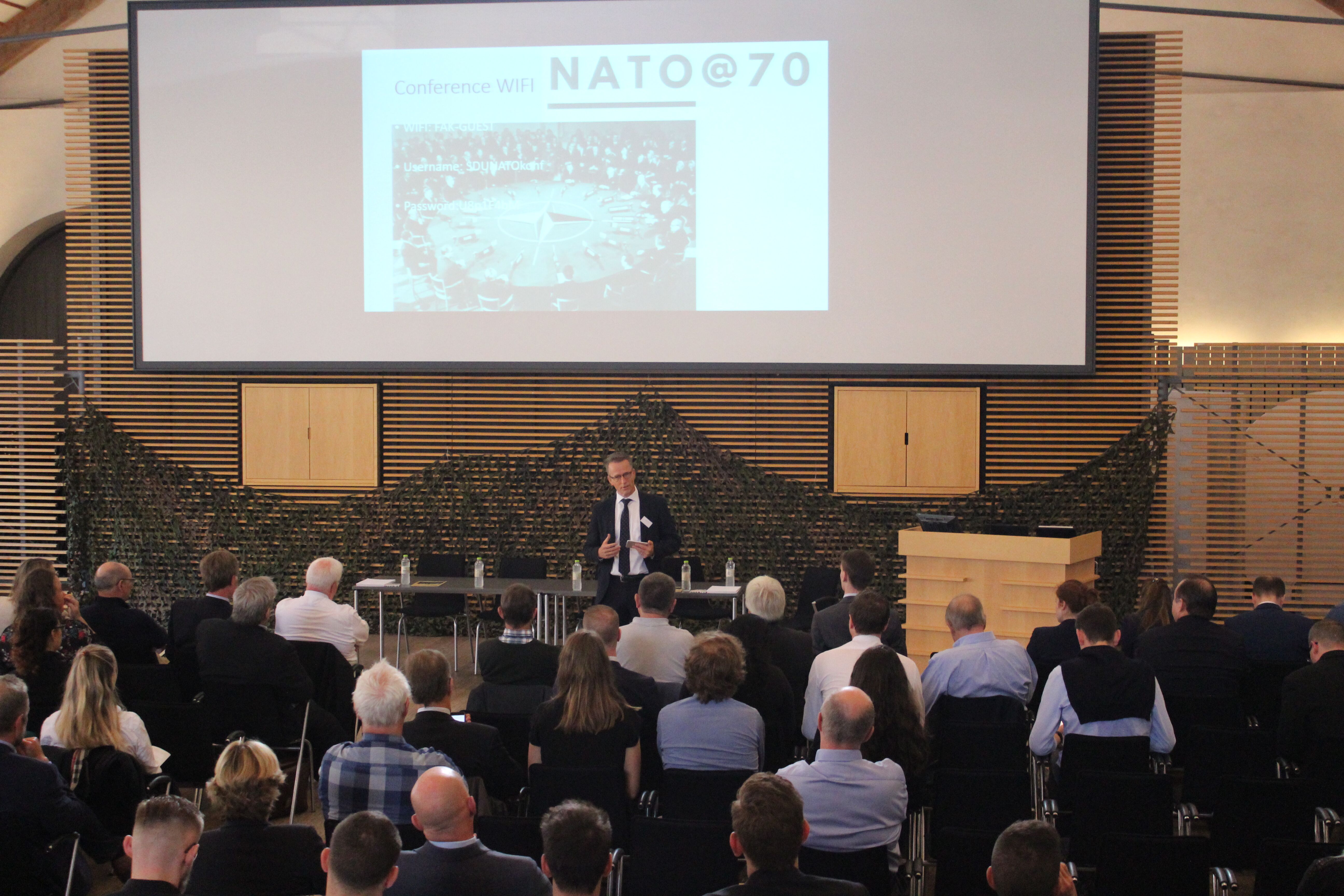
Dominika Kunertova, the main organizer of the conference, presented her own take on what is vital for the future and the continuing relevance of NATO: the young generation. The idea behind the conference was to connect generations; an attempt to reach out to young people and the broader public, as fading public support is one of the current struggles of NATO. “If NATO falls out of reach with its populations, then it will go out of business”, said Kunertova, who sent a message to young people to not be afraid, to make their voices heard and create a disruptive effect, and to take ownership of the Alliance so that it stays relevant for another 70 years.
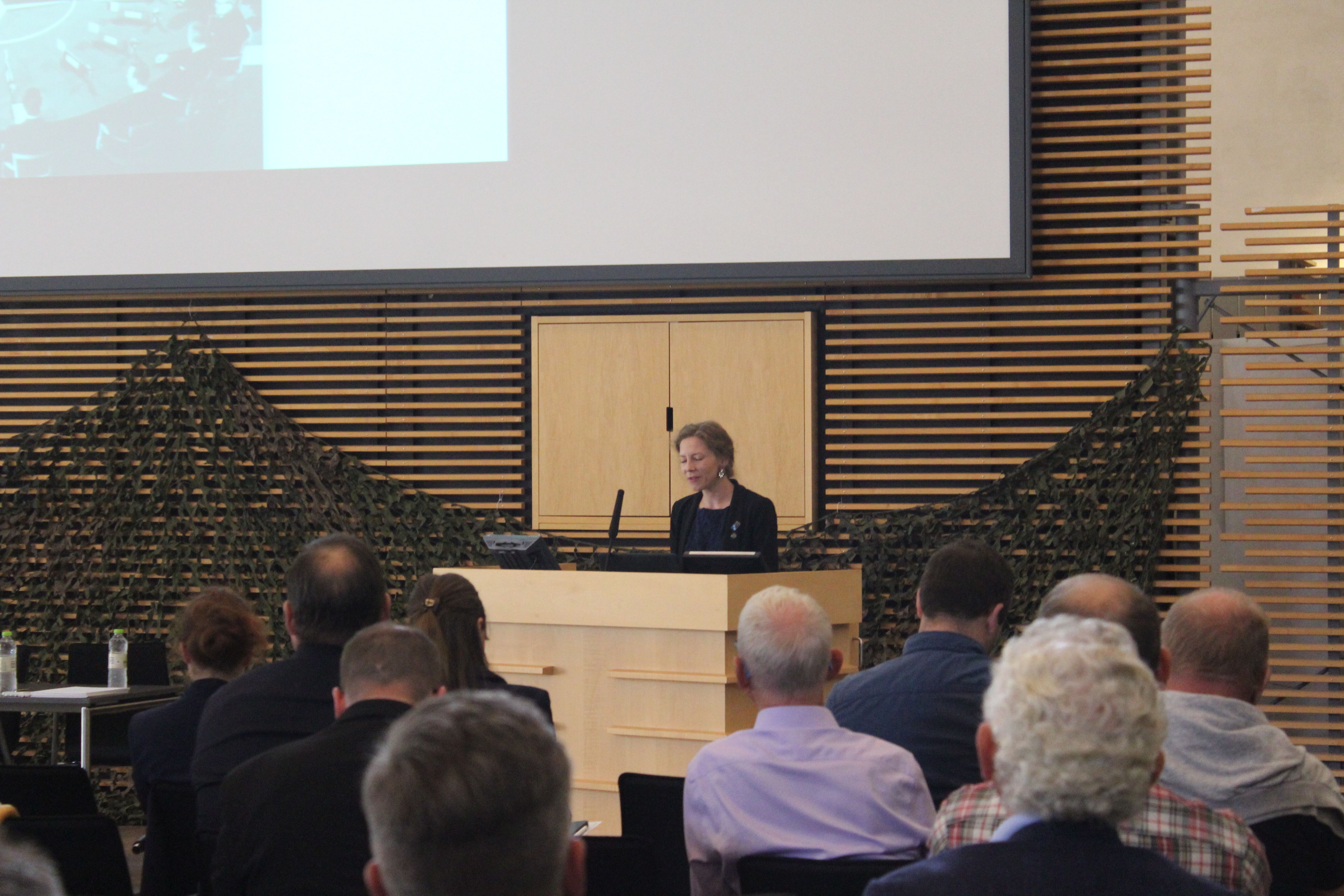
The first panel of the conference, titled “Denmark in NATO, NATO in Europe: Past Experience and Today’s Challenges”, chaired by CWS’s own Amelie Theussen, opened with Heinrich Brauss, former NATO Assistant Secretary General for Defence Policy and Planning. According to Brauss, NATO is the most successful alliance in history, but it is important to think of the strategic functions and features of NATO which have contributed to its success over the decades. NATO integrates democratic nations and provides security and stability for the Euro-Atlantic region; it demonstrates strategic unity of the transatlantic community and is a forum for political and military dialogue among allies, a hub of partnership and common military culture. But above all NATO is an embodiment of adaptability to varying challenges in changing eras. It is this notion of adaptation towards internal and external challenges which is and has always been needed, for the continuing survival and success of the Alliance.
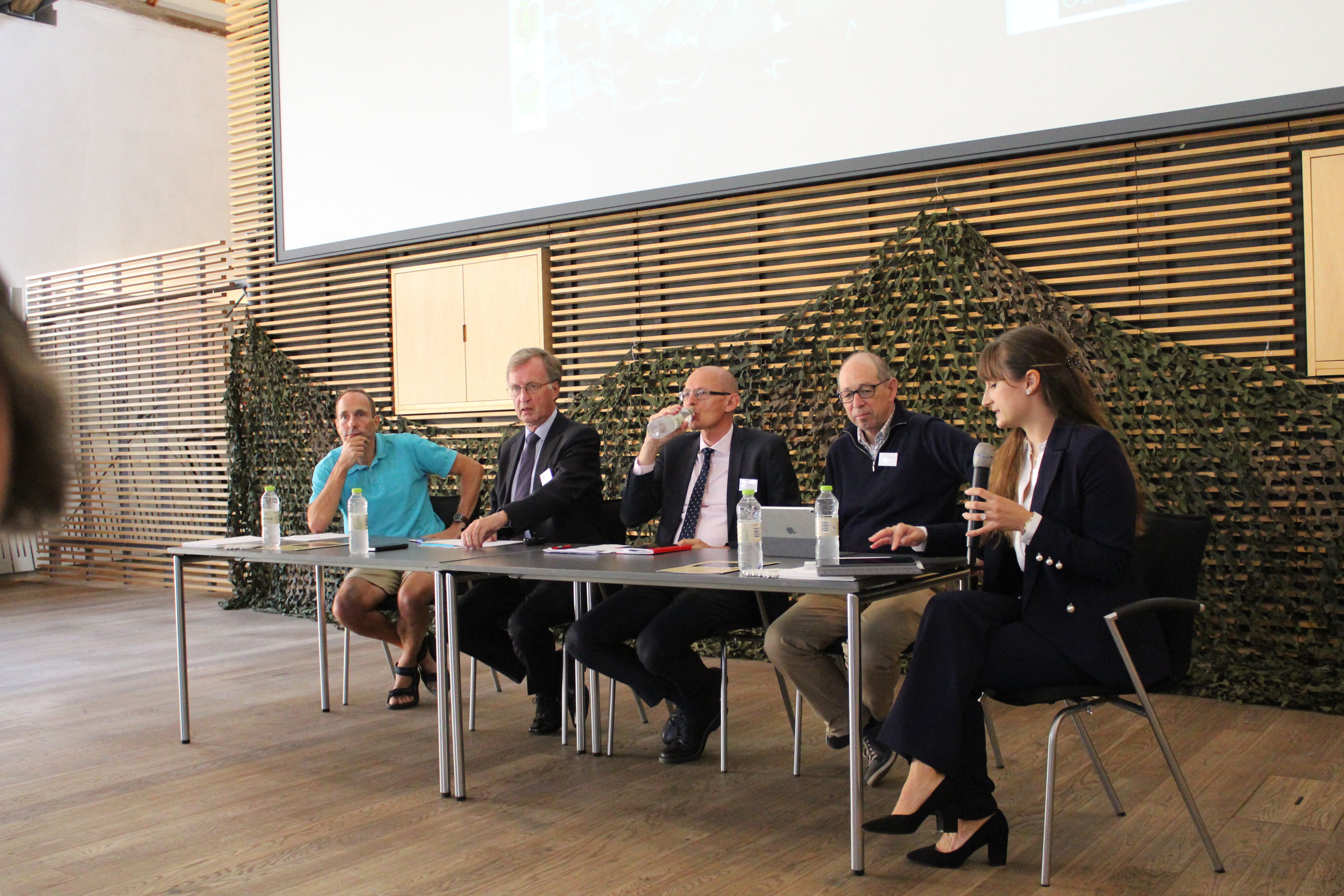
Niels Bo Poulsen, Director of the Department of Military History and War Studies at the Royal Danish Defence College also emphasized the importance of adjustment and adaptation. Poulsen took a historical approach, which aimed to appreciate where NATO is headed by looking back towards its structural changes. Is NATO in a deep and severe crisis, or will it survive its current problems, like it has so many times in the past? According to Poulsen, NATO has endured several crises since 1949: some external, such as the Suez crisis of 1956, or the 2003 Iraq War, some internal, such as disagreements over integration or the best way to tackle an opponent. NATO’s cohesion has also been affected, along with its position in today’s world and circumstances, brought about by demographic, economic, political, cultural, and environmental changes. The Alliance needs a continuous process of adjustment, either towards crisis management, or hard defence and deterrence.
The panel then moved towards Denmark’s history and position in NATO, with Peter Viggo Jakobsen of the Center for War Studies and the Royal Danish Defence College. For Jakobsen, Denmark’s history within the alliance can be divided into three periods: the Cold War years, the years after the end of the Cold War and until 2016, and 2016 and onwards. The reasoning behind this division is that Denmark has had a different profile throughout these three periods. While currently a strong and reliable member of NATO, originally Denmark was quite reluctant to be part of the Alliance, preferring to build a cooperation with the Nordic countries instead. This changed at the end of the Cold War, with Denmark succeeding in key NATO missions, and thus demonstrating an increased willingness to participate in combat operations, and an ambition to become a top-tier member of NATO, a position which rests on fulfilling the obligation towards upping its defence spending to 1.5% of the GDP.
Finally, the first panel ended with Nicholas Williams, former senior NATO and UK Ministry of Defence Official. Williams, drawing from his own experience, claimed that NATO has transformed from an alliance of purpose, to an alliance of convenience. Throughout the years, especially after the end of the Cold War, NATO developed from a single-purpose alliance to a multi-purpose alliance. During the Cold War, everything was geared towards deterrence and defence against the Soviet Union. Now, there is a host of initiatives that NATO has taken. Additionally, the alliance has undergone changes in terms of membership, partnership, leadership, but also of mission. The threshold for violence is lower now, as during the Cold War states were frightened to use military force. Regardless of these changes though, Williams concluded, NATO is adaptable and enduring, it is resilient, and it will survive the new situations.
The second panel of the conference, titled “Seven Decades of Transatlantic Cooperation Later, Which Way Ahead for NATO?”, was chaired by Olivier Schmitt and opened with Aaron Bazin, Managing Director at the Donovan Strategic Studies Group, U.S. Special Operations Command. Bazin brought his private take on the future of NATO using a forecast approach. He stressed the importance of keeping an open mind and being curious to avoid reacting passively to events. In essence, the future is not set in stone and can be shaped accordingly. His forecast for NATO in the future had three vignettes: One vision of NATO is that it is fading. The organization still exists formally but is it a shadow of its former self; a fractured NATO, where the member states vie for self-interest and unity of effort is lacking if crises should arise; the final one is a NATO that is resilient and adaptive to the storms of change. The first and second scenarios indicate concerning cases, where NATO is no longer able to adapt the strategic environment and is no longer considered a credible entity by external forces, e.g. Russia. All together however, he assesses that NATO can weather any strategic storm over the horizon.
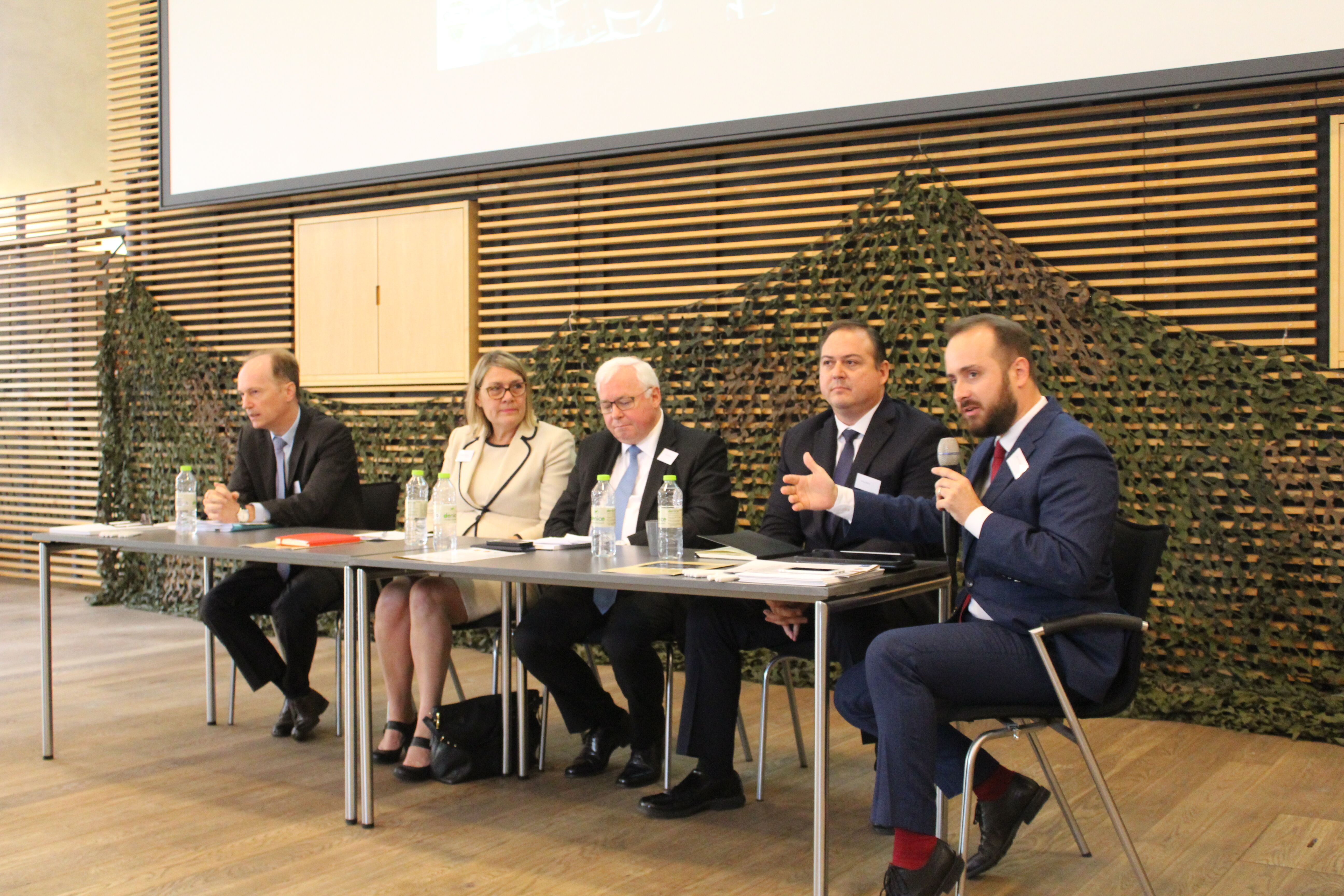
The question of how severe NATO’s internal dynamics are impacting the future of the Alliance, was the focus for CWS’s own Trine Flockhart. For Flockhart, NATO is a community of values setting it apart from normal defence alliances. Is NATO still a community of shared values among all its members? As any community is brought together by stories, which one is it being told now? NATO’s current story was one of a new type of crisis. The internal cohesion of NATO is in grave danger by political cleavages. Cleavages within the Alliance is not new, but current events are a symptom of forces wanting to transition towards a particularization of values and divide the international order into many. If NATO is to endure, we must be aware that NATO can only exist if our liberal values are upheld. In that light, the positive aspect is that NATO is aware of this and is currently counteracting these dynamics. However, as she concluded, if NATO cannot formulate a decision due to uncertainty but most of all dissonance over values, then adaptation is not possible in the face of crisis.
The same was the case with Michael Rühle’s presentation, head of the Hybrid Challenges and Energy Security Section at NATO. For Rühle, NATO has reached an inflection point. This is due to a dangerous brew of internal and external factors: Russian revisionism, re-emergence of great power competition, the attraction the Chinese illiberal model, rapid technological process which impacts how civilian and military decision makers, deterritorialization of the cyber domain, and novel hybrid warfare approaches. In overall terms, the problem that NATO faces are non-kinetic in nature, and this affects the Alliance’s ability to muster a collective response. These challenges are not insurmountable, but NATO has to do the following: more analysis beyond the military domain, more intelligence sharing, strategic analysis of rising powers and new technologies, and the issues of climate change. It is essential that NATO must avoid a situation where there is a lack of common understanding for what these developments mean and how NATO can mitigate these challenges. In this way, interaction between NATO, EU, and private companies is needed to further overcome these challenges especially towards the civilian infrastructure. But for Rühle one of key points is that NATO should not accept the current unpleasant status quo as the new normal. Finally, he characterized the transatlantic alliance as a learning community, and if NATO remains as such it will endure for a long time.
The second panel ended with Thierry Tardy, Director of the Research Division at NATO Defence College. His assessment was that the NATO still has a future: supply and demand will ensure the existence of the Alliance and there is no discerning view amongst the members for its dismantlement. Hard power, alliance of democracies, record of a successful alliance by deterrence of the Soviet threat, (albeit Afghanistan is different case to learn from) adaptation of external factors, technical issues such as interoperability are NATO strengths, and this cannot be found anywhere else. And even though NATO is faced with political challenges, as outlined above, NATO is all about handling instability especially in times of upheaval. Finally, he foresaw that NATO will evolve and be more synergic with other institutions and the EU.
The conference was closed by former Secretary General of NATO (2009-2014) and Danish Prime Minister (2001-2009) Anders Fogh Rasmussen, who outlined NATO’s role and future. 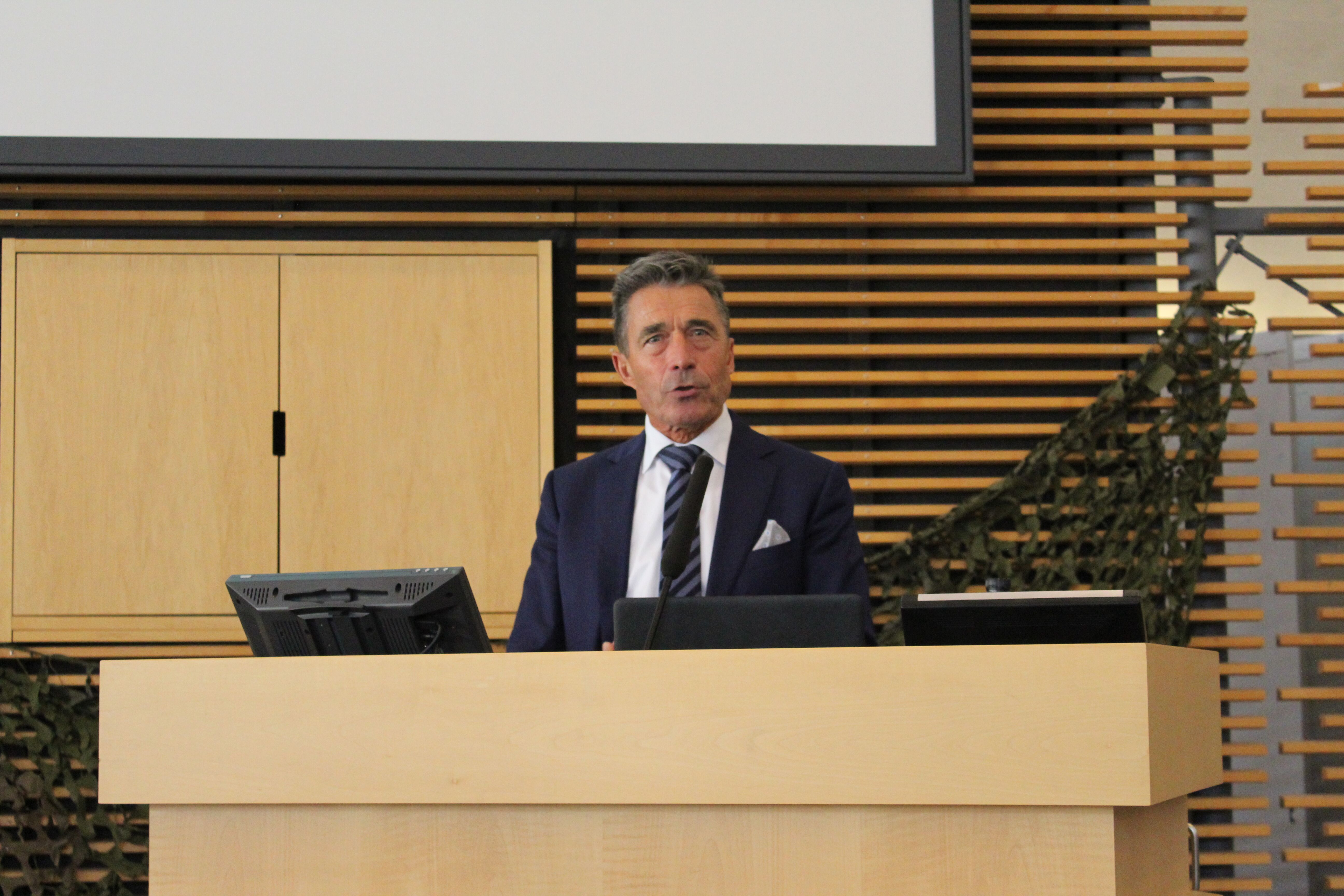
“Today I would summarize the purpose of NATO as: to keep the Russians out, keep the Americans in, and keep the Europeans engaged. Of course, we the Europeans, must invest more in the defence of our own countries. […] The fact remains that Europe is still failing to invest in essential defence capabilities. And this lack of European seriousness makes it too easy for the isolationists in America to mock NATO and argue for disengagement from Europe.” Russian meddling cannot only be attributed to the current upheaval in the West, said Rasmussen, but the current challenges are also a result of politicians’ lack of attention to the citizens’ domestic concerns. Understanding current challenges and their sources is not a blame game, but it is worth to reflect on and learn from it. Only through unity can we prevail and overcome the challenges we face. In that sense, NATO cannot shake off its prime responsibility and obligation to maintain our liberties and freedoms. The Alliance as a community of democracies cannot stand idlily by when times are toughest. Moral strength is required and the backbone of democracies around the world must be stiffened. Rasmussen stated that the United States is a source of moral inspiration and leadership for the free world, despite that the United States have not always been able to live up to these ideals. We may be concerned of what the future may hold, but it is when we doubt our resolve to uphold these liberal ideals that tyrants are tempted. In conclusion, Anders Fogh Rasmussen foresees NATO will endure another 70 years if we stand by our principles.
